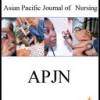Abstract
Title
EFFECT OF STRUCTURED TEACHING ON DISASTER PREPAREDNESS AND MANAGEMENT AMONG NURSES IN KERALA
Author
Nahomi Ezhilarasi John* and K.Jothy
Email
nahomiclement@gmail.com
keyword
Educational/structured teaching programme, Disaster aspects, role of nurses on preparedness and management
Abstract
Disasters pose unique challenge for every medical care facility in terms of infrastructure, capacity, and preparedness. World Health Organization stresses that healthcare workers need to be prepared for a disaster. Nurses are the largest manpower group in the health care team they need to be trained to equip with the competencies required during disasters to rescue life and safeguard the health of the individuals and communities affected by crisis. Aim: This study was aimed to evaluate the effectiveness of structured teaching programme on disaster preparedness and management among the nurses in Disaster Prone area district of Kerala Research approach adopted for this study was Quantitative study approach. The research design adopted for present study was quasi experimental (one group pre-test post-test design) and the samples were selected by the using purposive sampling technique. And 400 samples were selected from Healthcare Facility of hospitals, nursing colleges and schools The tool consisted of demographic variable details of training programmes that the nursing personnel attended, knowledge questionnaire on types of disaster, and role of nurses regarding disaster management and prevention. The researcher prepared a structured Educational interventional programme, used variety of teaching methods like Lecture, Discussion, Videos, power point presentation and Educational Booklet were distributed to the participants and to the Institution. Descriptive and inferential statistics such as frequency, mean, chi-square, and Pearson’s correlation were used for data analysis. The demographic profile of the staff revealed that majority between 307(76.8%) belonged to 21 to 30yrs of age, were 188(47.0%) were BSc Nurses, 188(47.0%) and 319(79.8%), working as staff nurses or as nursing Tutor and majority of the subject 284(71%) were married. Findings: The present study findings have revealed comparing pre test scores the post-test mean score, standard deviation was found highly significant, after the educational interventional programmes with the significant p value at (0.001) level. From the study results there was statistically significant differences in all items of disaster management among study subjects There was an statistically significant association between the education and role of the nurses regarding disaster management and prevention (p=07** at 1 % level), association between the marital status and awareness of earthquake 0. (2 tailed test of 0.048,0.045P Value<0.05 * at 5 % level) and there was association between the occupation nurses with Tsunami and prevention strategy (p =0.016, P Value<0.05).There was no statistically significant association between the age and awareness regarding various disaster characters.(P value>0.05) Conclusion: The Educational Intervention programme regarding disaster preparedness and management was founded very effective and will nurses to save lives and also to serve as ready Manpower at the time of disaster in preserving the livelihood.













